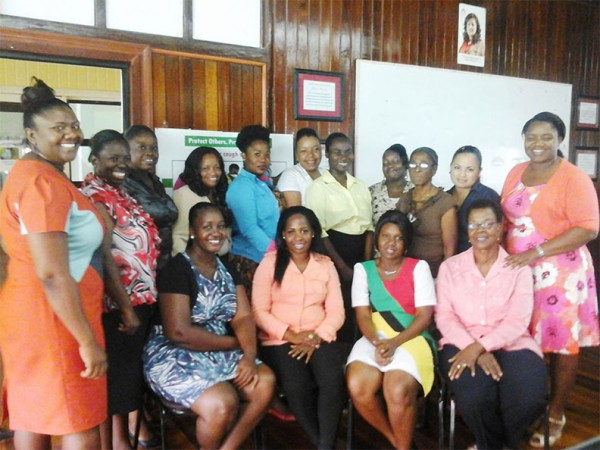Up until a few weeks ago when the Stabroek Business covered a meeting of the Guyana Association of Home Econo-mists (GAHE) relatively few people outside the professional circle knew about the existence of the organization and fewer still were aware of the fact that in April 2015 GAHE will be hosting a forum of the Caribbean Association of Home Economists.
GAHE comprises teachers in the education system who are trained in the multi-faceted discipline of Home Economics and who teach the subject in the local school system.
For a number of years we were prisoners of an understanding of what Home Economics was. It was the conventional understanding that Home Economics was the vehicle through which you taught young women to become good housekeepers. That may have changed in relatively recent years though there is no real evidence that Home Economics has been embraced as a discipline that can serve as a respected stand-alone profession and can also be infused into some of the other sectors of the economy including the tourism and food sectors.

By confining Home Economics to a relatively narrow socio-cultural space we have limited its options. The error has been to fail to dissect the curriculum and to understand the extent of the training and just what it qualifies the practitioner to do.
Our understanding of what Home Economics is has, to a large extent been limited to cooking and cleaning and good housekeeping.
The people at fault for this stereotyping of Home Economics are, to a large extent, the Home Economists themselves, who have not done much to market their profession or their skills and competencies. To this day the perception of a student attending the Carnegie School of Home Economics (CSHE) is that he or she (mostly she) is simply seeking to sharpen his/her housekeeping skills, or else, taking aim at some low-level position in a hotel or restaurant. One can think of other marketing opportunities which the profession has missed.
GAHE, whether it likes it or not, must take much of the responsibility for failing to sell itself and in failing to do so it may well have found that the profession is now playing catchup. It needs to seriously make the point that Home Economists are people who do much, much more than teach people how to cook and clean.
Even now, with the promotion of tourism and hospitality having moved much more to the centre of the public discourse on the promotion of the various sectors of the economy, our Home Economists have maintained a condition close to silence. It may well be that it has been the failure of the profession to make itself be seen as an area of genuine economic and professional opportunity that has caused many parents to be less than pleased with having their children do the subject at school,
The silence of the professionals was broken recently on account of the realization that the regional conference of Home Economists is now just a few months away. Still, the body has taken what appears to be no more than ‘baby steps’ as far as readying itself to deliver a major international conference is concerned.
It is not just the Conference, per se, that is important. It is about the role that it can play in promoting Home Economics as a profession and transform the discipline into an industry.
If you take a walk through most if not all of our hotels, restaurants and Guest Houses you are bound to spot deficiencies that can easily be remedied by some measure of oversight by a trained Home Economist. They are trained to play an important role in the refinement of protocols and practices that enhance competitiveness in the aforementioned sectors and raise levels of customer appeal. One of the virtues that an experienced Home Economist would bring to the hospitality service sector is to draw attention to the implications of ‘cutting corners’ on high standards of service delivery. GAHE might even be able to raise standards and improve service delivery in the state hospitality sector where public functions including state receptions can be enhanced through the infusion of higher standards.
Unquestionably, there is a role for Home Economists in the search for higher standards. There is therefore something to be said for GAHE undertaking an aggressive promotional exercise in order to arrest the attention of its important audiences including the state sector and the business community. What it should do as well is to seek to form strategic alliances ahead of next year’s important professional forum which is being held in Guyana.




